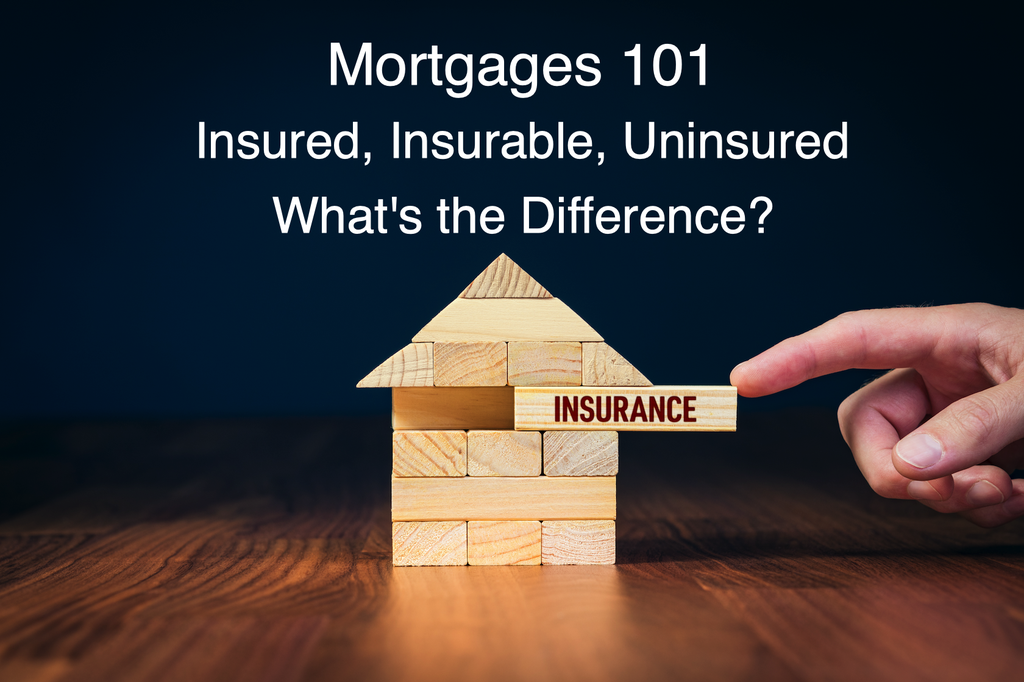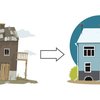What’s the Difference Between Insured, Insurable, and Uninsured Mortgages

As the President and Principal Broker at Clover Mortgage (Lic# M18001927), I often get asked why advertised bank mortgage rates seem too good to be true when clients are approved at much higher rates. The answer lies in understanding the different categories of mortgages in Canada - insured, insurable and uninsured.
Banks heavily promote their insured and insurable mortgage rates as these are their least risky products. However, not everyone qualifies for these low-rate options based on factors like home price, down payment amount, income and credit profile. Navigating mortgage types is crucial to secure the best rate you're eligible for.
Key Takeaways:
- Advertised rock-bottom rates are for insured/insurable mortgages only
- Insured mortgages require mortgage default insurance for high-ratio loans
- Insurable mortgages are insured by the lender at a slightly higher rate
- Uninsured mortgages carry the highest interest rates due to lack of default insurance
By understanding how mortgage insurability impacts rates, borrowers can set realistic expectations and secure a mortgage product that fits their needs and qualifications.
What Differentiates Insured Mortgages from Insurable Mortgages and Uninsured Mortgages?
There are 3 categories of mortgages when it comes to default insurance:
Depending on which category you as a borrower, and your property and required mortgage amount fall under, will help determine what rates may be available to you. So, in this article, we'll explore insured vs insurable mortgage.
| Insured Mortgage | Insurable Mortgage | Uninsured Mortgage | |
|---|---|---|---|
| Down Payment | < 20% | ≥ 20% | Any |
| Insurance Premium Paid By | Lender | Lender | None |
| Home Price Limit | < $1 million | < $1 million | Any |
| Available For | Purchases Only | Purchases & Switches | Purchases, Switches & Refinances |
| Interest Rates | Lowest | Low | Highest |
What is an insured mortgage?
An Insured mortgage is a mortgage that tends to offer the lowest mortgage rates to the borrower since this default insurance will cover the lender in the event that the borrower defaults on their mortgage and there is a shortfall once the property is sold. Since the borrower pays for this insurance and the lender does not incur any additional costs, they typically extend the lowest rates to these insured borrowers.
In certain instances, mortgage default insurance is mandatory. For example, if a borrower has less that 20% as a down payment when purchasing a property, they will in most cases be required to qualify and pay for mortgage default insurance . When applying for this type of mortgage insurance in Canada, the following insurance companies are most commonly accepted by lenders:
- CMHC (Canadian Mortgage and Housing Corporation)
- Sagen (formerly Genworth Financial)
- Canada Guaranty
Not everyone can qualify for mortgage default insurance, as each insurer has minimum qualifying criteria that the borrower needs to fall under. This includes minimum requirements for credit, income-to-debt ratio, and more. It's also important to note, that mortgage default insurance is only available when purchasing a property and cannot be bought or subscribed to when refinancing a property that you already own.
Here's a little breakdown about insured mortgages:
- The borrower pays the premium on the default insurance for a conventional mortgage policy
- This type of insurance protects the lender's investment in the event that you default on the mortgage
- Are mandatory when your minimum down payment is less than 20% and seeking a mortgage from a AAA lender
- There are some private lenders who might lend to you without mortgage default insurance even if you have less than 20% down, but the interest rates are higher
- Although it usually applies to borrowers who require a mortgage to cover between 80.05% to 95% of the home's purchase price, a borrower can still purchase default insurance no matter what the full loan-to-value ratio (LTV) is
- All mortgage default applications MUST pass the stress test at the benchmark rate set by the Bank of Canada and can only be amortized up to a maximum of 25 years
- It is only available to owner-occupied properties and not to rental properties
- Are only available on home purchases of under $1,000,000
- Are not available when performing a mortgage refinance. Purchases only.
- The borrower must have a strong credit history and a minimum credit score of 600, thought CMHC recently raised their minimum to 680
- The borrowers must fall within the maximum debt-to-income ratios (GDSR and TDSR – debt servicing ratios)
| Debt Servicing Ratio | CMHC | Sagen | Canada Guaranty |
|---|---|---|---|
| Gross Debt Service (GDS) | 35% | 39% | 39% |
| Total Debt Service (TDS) | 42% | 44% | 44% |
- Mortgage default insurance providers: CMHC, Sagen (formerly Genworth Financial), and Canada Guaranty
- The insurance premium can be included in the mortgage and amortized over a maximum period of 25 years
- In Ontario, the HST on the insurance premium cannot be rolled up into the monthly mortgage payments and must be paid at time of closing of an uninsured mortgage.
It's important to note that if you purchase a property along with mortgage default insurance, in the event that you ever switch mortgage lenders in the future for the same property without refinancing your mortgage at a higher amount, you can transfer your mortgage default insurance premiums and policy to the new lender so that you qualify for their rock bottom rates. It is your duty to ensure that your new lender or mortgage broker is aware of this.
What is an insurable mortgage?
And insurable mortgage is a mortgage that is default-insured by the lender rather than by the borrower. This means that the lender pays the mortgage insurance premium, and “back-end insures” your mortgage loan.
Insurable mortgages still require you to qualify and are only available on home purchases that are $1,000,000 or less, and where the borrower has at least 20% as a down payment. Since the mortgage is a transactionally insured mortgage, the lender will usually offer special low rates to the borrower, but since the lender incurs the cost of this insurance those rates are not usually as low as they would be with a “insured mortgage” where the borrower would pay for the insurance premium.
More info about insurable mortgages:
- They are only available as an option on mortgages that are 80% or less of the purchase price of the home
- Only available on new purchases and straight lender switches, not on refinances
- The lender pays the premium, not the borrower, so there is no HST to be paid on closing, and no monthly premium payments to be made
- Rates tend to be slightly higher than for insured mortgages since the lender is incurring costs
- Borrower's credit and income-to-debt ratios must qualify
- Mortgage stress-test applies
- In the event of a purchase, the property must be purchased for less than $1,000,000
- In the event of a switch, the property must have been purchased for less than $1,000,000 and no increase in mortgage amount or amortization period has transpired since the original purchase date. Grandfathered rules and conditions may apply
- Only available on owner-occupied home purchases
What is an Uninsurable Mortgage?
An uninsurable mortgage is a mortgage loan that cannot be insured against default. Any mortgage that does not qualify within the guidelines of an insured mortgage or an insurable mortgage is deemed to be uninsurable. A mortgage refinance can never be insured or insurable and therefore is always uninsurable. Purchases and mortgage switches can only be insured or insurable if they fall within the criteria listed above.
Here is some more info about uninsurable mortgages:
- Purchases of $1,000,000 or more, or even purchases of less than $1,000,000 that do not qualify based on the requirements of an insurable or insured mortgage
- Mortgage refinances where you either increase the mortgage amount or increase the amortization period
- Non-owner occupied properties
- Amortized for longer than 25 years
Does Mortgage Insurance Protect Me?
Mortgage default insurance does not protect the borrower in the event of death, illness, or disability. That kind of insurance is called Creditor Life and Disability Insurance which will cover your mortgage payments should you die or become critically ill or disabled.
Mortgage default insurance only protects your lender in the event that you default on your mortgage loan. It guaranties that their investment in the loan will get repaid to them even if you stop paying your mortgage.
FAQ
Do I have to pay mortgage insurance with a high ratio mortgage in Canada?
Yes, if your down payment is less than 20% of the home purchase price, you are required to get mortgage default insurance from CMHC or a private insurer. This insurance protects the lender if the borrower stops making payments.
How is the mortgage insurance premium paid?
For an insured mortgage, the borrower pays the insurance premium, which can be rolled into the total mortgage amount and paid as part of the monthly payments. For an insurable mortgage, the lender pays the bulk insurance premium.
Is there a provincial sales tax on the mortgage insurance?
In Ontario, any sales tax (e.g. HST) on insured mortgage insurance premiums cannot be added to the mortgage and must be paid as a lump sum on closing.
Does mortgage insurance protect against disability or death?
No, mortgage default insurance only covers the lender if you stop making payments. Creditor insurance is separate and protects the borrower in case of disability, critical illness or death.
What is considered a high-ratio insured mortgage?
A mortgage with less than 20% down payment, requires default insurance. The loan-to-value (LTV) ratio must be 80% or higher.
Are there home price limits for insured/insurable mortgages?
Yes, both insured and insurable mortgages have a home purchase price cap of 1 million . Mortgages over 1 million are automatically uninsured.
Can I get a low contract rate with an uninsured mortgage?
Unlikely. The lowest advertised rates are usually for insured or insurable mortgages since that lowers the lender's risk. Uninsured mortgage rates tend to be higher.
Would like to know what kind of mortgage and rates you can qualify for?
Please call Clover Mortgage at 416-674-6222 or email us at info@clovermortgage.ca to speak with a knowledgeable and helpful mortgage broker.





